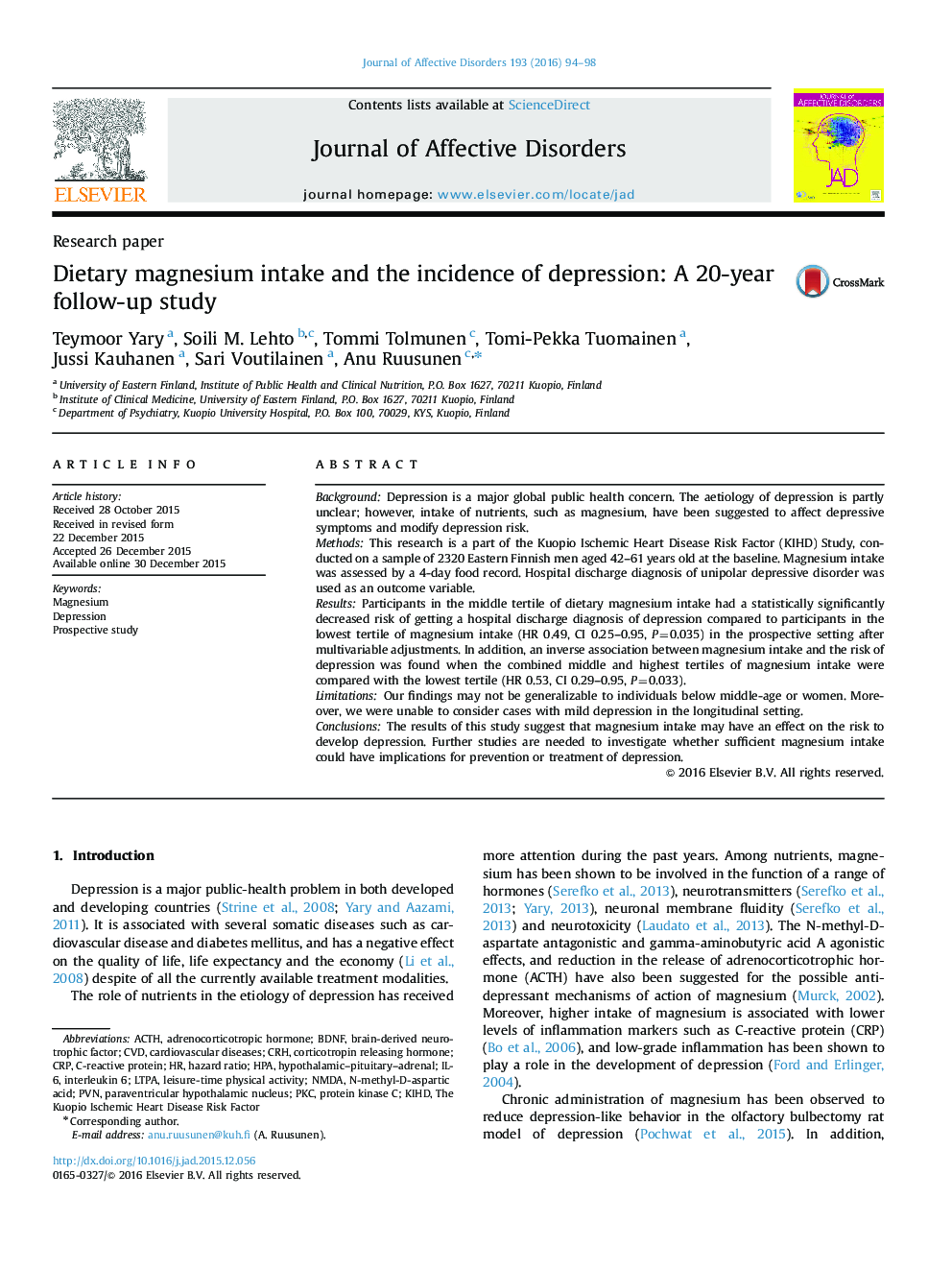| Article ID | Journal | Published Year | Pages | File Type |
|---|---|---|---|---|
| 6230432 | Journal of Affective Disorders | 2016 | 5 Pages |
â¢Dietary magnesium intake was found to have an association with the risk of depression.â¢This is the first prospective study with 20 years of follow-up to report the association between magnesium intake and the incidence of depression in men.â¢Further studies need to clarify if magnesium has a role in prevention of depression.
BackgroundDepression is a major global public health concern. The aetiology of depression is partly unclear; however, intake of nutrients, such as magnesium, have been suggested to affect depressive symptoms and modify depression risk.MethodsThis research is a part of the Kuopio Ischemic Heart Disease Risk Factor (KIHD) Study, conducted on a sample of 2320 Eastern Finnish men aged 42-61 years old at the baseline. Magnesium intake was assessed by a 4-day food record. Hospital discharge diagnosis of unipolar depressive disorder was used as an outcome variable.ResultsParticipants in the middle tertile of dietary magnesium intake had a statistically significantly decreased risk of getting a hospital discharge diagnosis of depression compared to participants in the lowest tertile of magnesium intake (HR 0.49, CI 0.25-0.95, P=0.035) in the prospective setting after multivariable adjustments. In addition, an inverse association between magnesium intake and the risk of depression was found when the combined middle and highest tertiles of magnesium intake were compared with the lowest tertile (HR 0.53, CI 0.29-0.95, P=0.033).LimitationsOur findings may not be generalizable to individuals below middle-age or women. Moreover, we were unable to consider cases with mild depression in the longitudinal setting.ConclusionsThe results of this study suggest that magnesium intake may have an effect on the risk to develop depression. Further studies are needed to investigate whether sufficient magnesium intake could have implications for prevention or treatment of depression.
